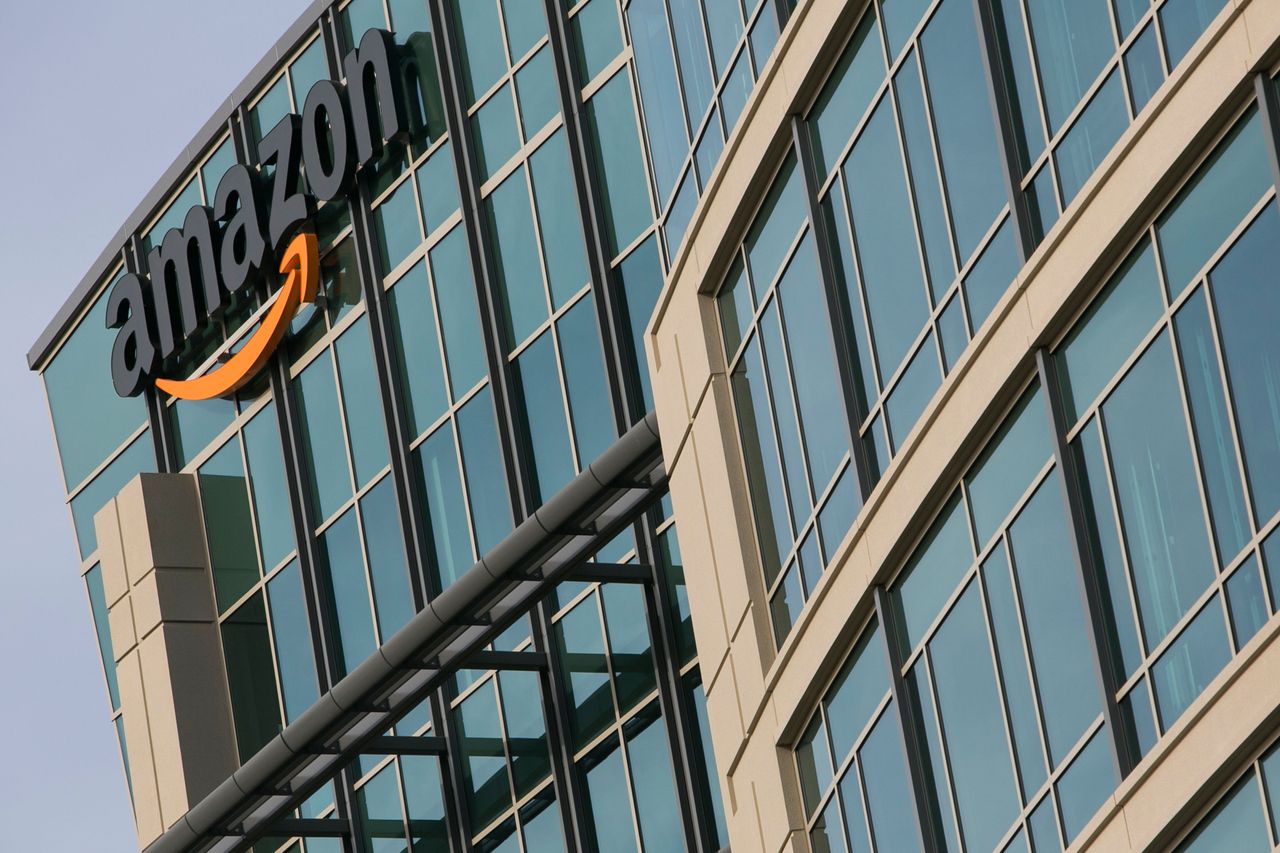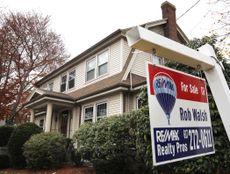Are corporate tax incentives worth it?
Local governments offer billions in incentives to attract businesses like Amazon. Does that practice pay off?

Local governments offer billions in incentives to attract businesses like Amazon. Does that practice pay off? Here's everything you need to know:
How much is being spent?
Tax incentives given to businesses now total $80 billion a year — triple the amount in 1990. These inducements come in the form of income tax credits and exemptions, property tax abatements, land grants, low-interest loans, cash giveaways, and other free services. Major corporations have come to expect generous incentive packages for opening or moving offices or plants, spawning an industry of consultants dedicated to negotiating lucrative offers from local governments. For the largest, highest-profile companies, no negotiation is necessary. After encouraging a nationwide bidding war for its second headquarters, Amazon received proposals from 200 cities. To locate the headquarters in Newark, one of the 20 finalists, New Jersey has offered Amazon up to $7 billion in tax breaks — more than the $5 billion the company plans to spend on the project itself.
Subscribe to The Week
Escape your echo chamber. Get the facts behind the news, plus analysis from multiple perspectives.

Sign up for The Week's Free Newsletters
From our morning news briefing to a weekly Good News Newsletter, get the best of The Week delivered directly to your inbox.
From our morning news briefing to a weekly Good News Newsletter, get the best of The Week delivered directly to your inbox.
What's the benefit to communities?
Incentives are premised on the idea that businesses will hire workers and grow the local economy. Amazon, for example, has promised to hire 50,000 workers at an average salary of $100,000 per year at its new headquarters — a prospect that has nearly every small and large city salivating. Economist Enrico Moretti of the University of California, Berkeley estimates that the "spillover" effects could lead to as many as 300,000 new jobs over the next two decades by attracting other technology firms as well as a host of other businesses to service the needs of an affluent workforce. "This definitely beats other deals I have seen, to be sure," says Moretti. "It would certainly increase the attractiveness of that city for other well-paying high-tech jobs." Amazon, however, is not typical.
What usually happens?
Economists say that most of the time, the incentives are counterproductive — a zero-sum game in which jobs created in one community come at the expense of jobs lost somewhere else. The real winners are companies, which are able to play municipalities against one another so as to be freed of paying taxes other businesses (and homeowners) do. The result is a "race to the bottom," leaving cities with less to spend on infrastructure improvements and public education. At the same time, companies increase expenses for communities by drawing on public resources, including sewer systems, roads, power lines, and schooling for workers' children. Last year, Wisconsin pledged $3 billion in incentives to electronics manufacturer Foxconn to build a plant in Racine County that the company says will eventually employ 13,000 workers. But according to Wisconsin's own estimates, the cost to taxpayers per job created is $230,700, and the state won't recoup its investment until 2043.
Why offer incentives, then?
Governments believe that they have no choice. Research suggests that tax incentives are the deciding factor in location decisions less than 15 percent of the time, with companies giving more weight to transportation costs, housing availability, access to raw materials, and workforce demographics. Nevertheless, civic leaders see not offering incentives as equivalent to unilateral disarmament. "If you don't have something on the table, you are going to lose," said G. David Gillock, mayor of North Ridgeville, Ohio. His city recently lured a manufacturing firm with $7 million in incentives. "If we said we don't have any incentives, but we have a low income-tax rate and we would love to have you, they would not be here."
What are the alternatives?
Opponents of incentives have long advocated for a federal law banning them, but that seems unlikely to happen. In a rare exception, counties within Ohio and Colorado have agreed to stop competing with one another on incentives. But such agreements are difficult to work out. Leaders in the Kansas City area have tried in vain for years to defuse a "border war" along the Kansas-Missouri state line in which both states spend heavily to lure businesses from each other. Since 2009, 6,000 jobs have moved from Missouri to Kansas, while 5,500 jobs have moved from Kansas to Missouri, at the combined cost of $321 million in lost tax revenue.
When do incentives pay off?
When they actually persuade a company to do something it wouldn't do otherwise. Critics of incentives point to New York City's decision to give $10 million in tax incentives to the filmmakers behind Wall Street: Money Never Sleeps, even though the film had to be set on Wall Street. Amazon has already received more than $1 billion in incentives from 129 communities, much of it to build distribution centers and data farms that it needed to build anyway. A better use of incentives, critics say, would be encouraging companies to build in a depressed city, to expand existing businesses, or to employ reformed ex-cons who can't otherwise find work. "If you spend public money to do those things, those are worthy incentives," says Greg LeRoy of Good Jobs First, which tracks corporate subsidies. "Not subsidies, windfalls, or giveaways."
The stadium spending spree
Taxpayers have spent more than $13 billion in tax-free municipal bonds to help build professional sports stadiums since 2000. On average, taxpayers assume 78 percent of the cost of these stadiums, whose revenues mostly go to private team owners. The net economic benefits of these generous public incentives, however, are dubious. A recent poll by the Federal Reserve found that 83 percent of economists agree that sports subsidies cost taxpayers more money than they bring in. Studies show that most of the money stadiumgoers spend is simply diverted from entertainment money they would have spent on other local businesses, such as movies, concerts, or restaurants. "If you ever had a consensus in economics, this would be it," said Michael Leeds, a sports economist at Temple University. "A baseball team has about the same impact on a community as a midsize department store." In its recently passed tax bill, Republicans nearly banned tax-free status for municipal bonds used to fund stadiums. But the proposal was stripped out of the final version after heavy lobbying from professional sports leagues.
Sign up for Today's Best Articles in your inbox
A free daily email with the biggest news stories of the day – and the best features from TheWeek.com
-
 Store closings could accelerate throughout 2025
Store closings could accelerate throughout 2025Under the Radar Major brands like Macy's and Walgreens are continuing to shutter stores
By Justin Klawans, The Week US Published
-
 Crossword: February 20, 2025
Crossword: February 20, 2025The Week's daily crossword
By The Week Staff Published
-
 Sudoku hard: February 20, 2025
Sudoku hard: February 20, 2025The Week's daily hard sudoku puzzle
By The Week Staff Published
-
 The pros and cons of noncompete agreements
The pros and cons of noncompete agreementsThe Explainer The FTC wants to ban companies from binding their employees with noncompete agreements. Who would this benefit, and who would it hurt?
By Peter Weber Published
-
 What experts are saying about the economy's surprise contraction
What experts are saying about the economy's surprise contractionThe Explainer The sharpest opinions on the debate from around the web
By Brendan Morrow Published
-
 The death of cities was greatly exaggerated
The death of cities was greatly exaggeratedThe Explainer Why the pandemic predictions about urban flight were wrong
By David Faris Published
-
 The housing crisis is here
The housing crisis is hereThe Explainer As the pandemic takes its toll, renters face eviction even as buyers are bidding higher
By The Week Staff Published
-
 How to be an ally to marginalized coworkers
How to be an ally to marginalized coworkersThe Explainer Show up for your colleagues by showing that you see them and their struggles
By Tonya Russell Published
-
 What the stock market knows
What the stock market knowsThe Explainer Publicly traded companies are going to wallop small businesses
By Noah Millman Published
-
 Can the government save small businesses?
Can the government save small businesses?The Explainer Many are fighting for a fair share of the coronavirus rescue package
By The Week Staff Published
-
 How the oil crash could turn into a much bigger economic shock
How the oil crash could turn into a much bigger economic shockThe Explainer This could be a huge problem for the entire economy
By Jeff Spross Published